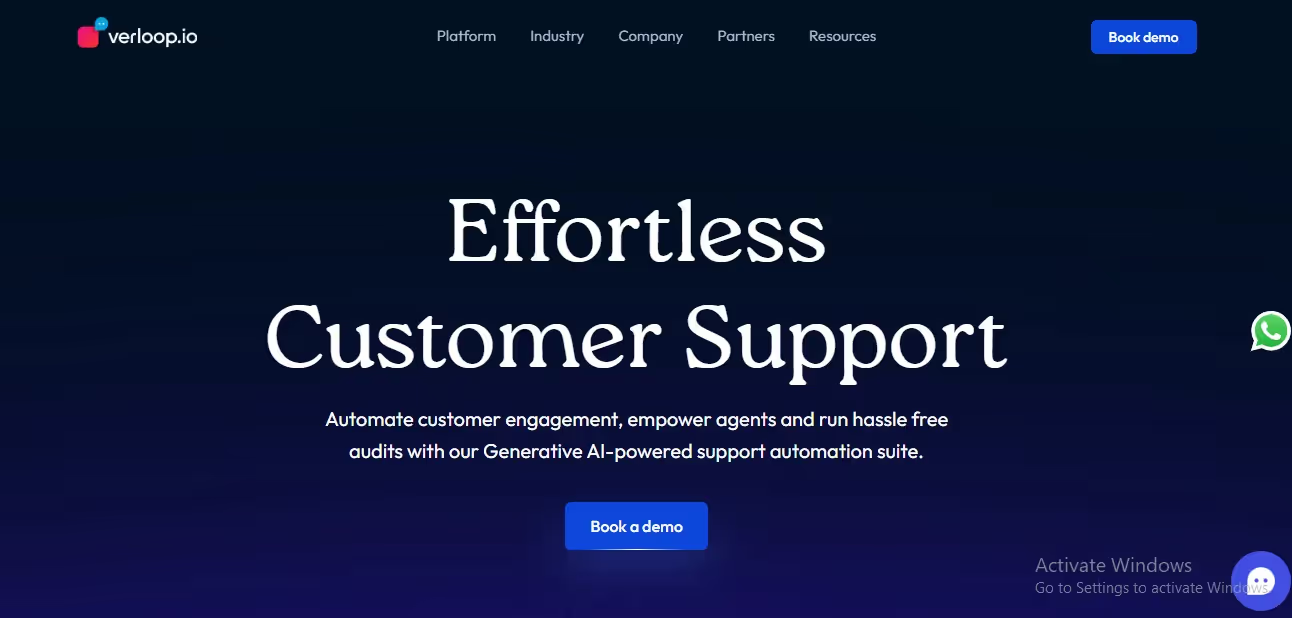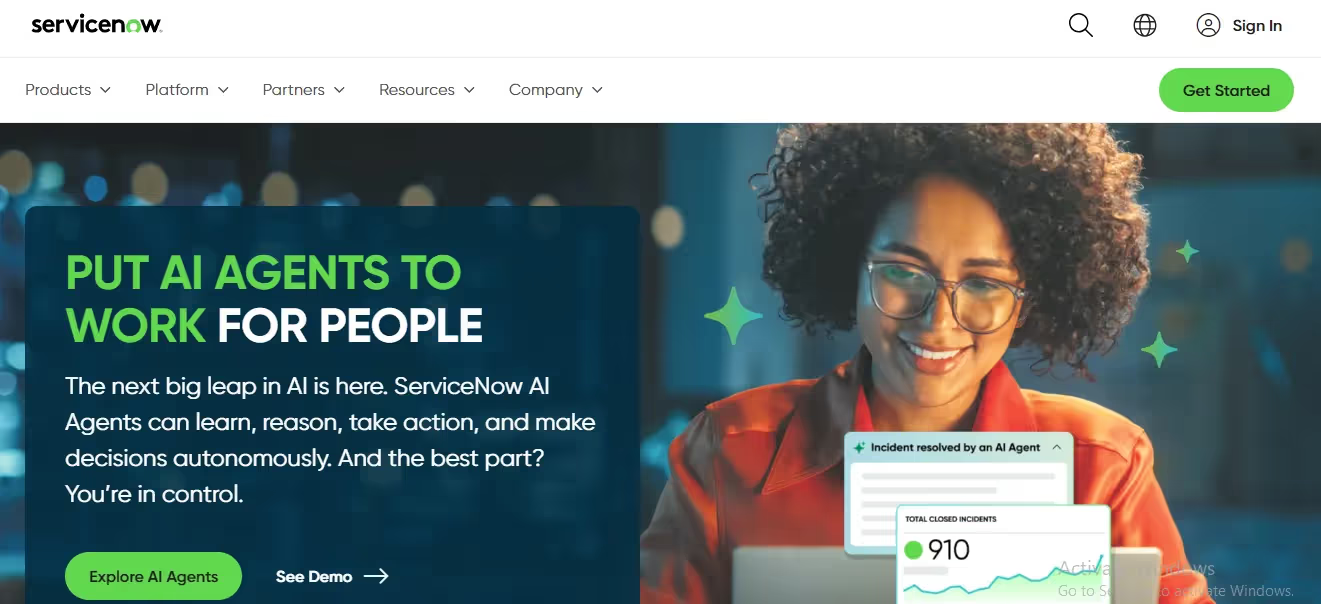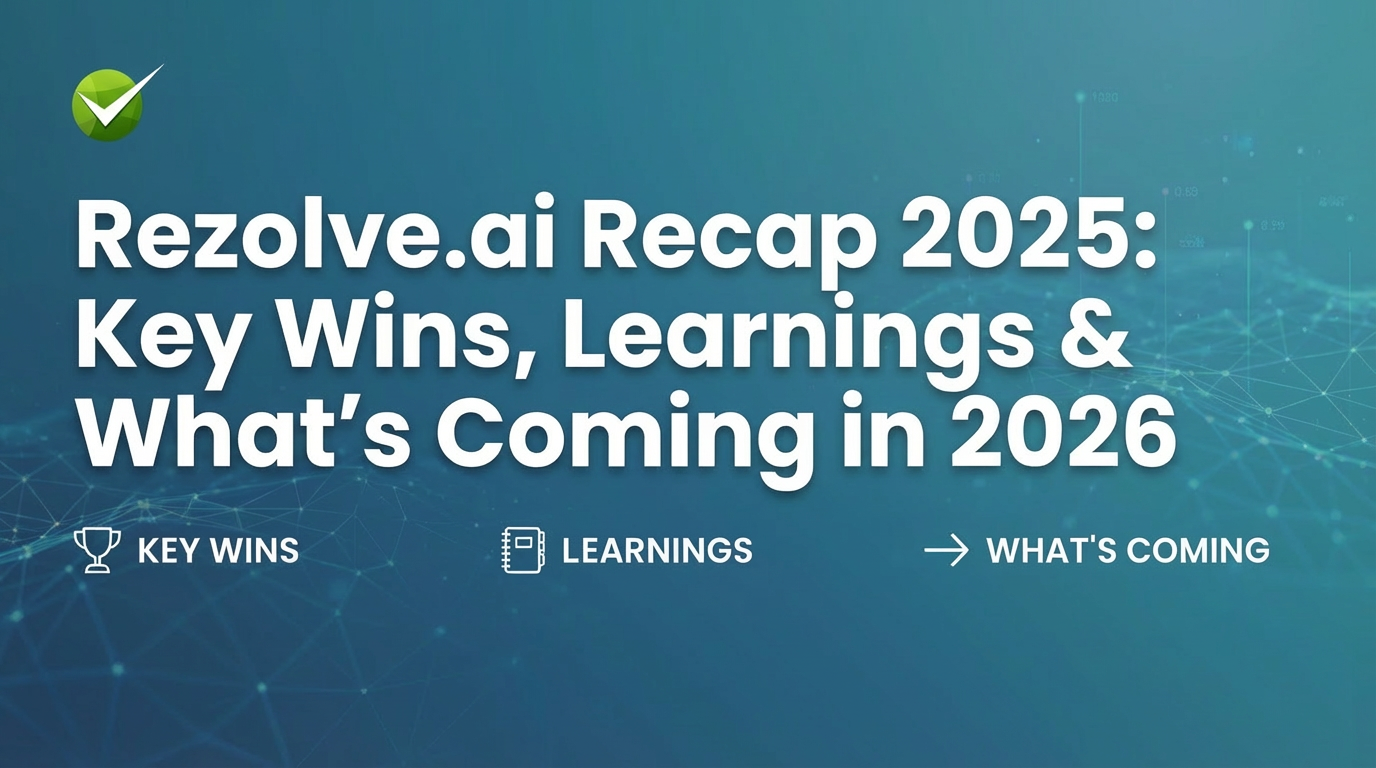The way businesses communicate internally and externally is undergoing a massive shift. With the rise of hybrid workplaces and the increasing need for instant support, conversational AI platforms have become a cornerstone for delivering seamless, 24/7 service.
According to ITPro, by the end of 2025, over 95% of customer and employee interactions will involve conversational AI. However, traditional chatbots often fall short—43% of users say bots fail to understand their needs (Search Engine Journal).
In this blog, we explore how conversational AI platforms are reshaping the future of work and present a curated list of the top 15 platforms you should consider.
What is Conversational AI?
Conversational AI enables machines to simulate human-like conversations using AI, NLP, and machine learning. It helps automate routine support, deliver personalized experiences, and reduce operational overhead. Unlike simple chatbots, conversational AI understands context, sentiment, and intent, making conversations more natural, accurate, and scalable.
Conversational AI is transforming how businesses engage with customers and employees—but what exactly is it, and why does it matter? In our latest podcast, we break down the fundamentals of conversational AI, its real-world applications, and the future of this game-changing technology. Listen in to get a comprehensive understanding before exploring the top platforms!
How Conversational AI Works: Understanding the Technology
Conversational AI operates through a sophisticated workflow that transforms human inputs into meaningful responses. Understanding this process helps businesses evaluate platforms more effectively.
The Conversational AI Workflow
- Input Processing: When a user interacts with a conversational AI system (through text or voice), the input is captured and preprocessed. This involves cleaning the text, correcting spelling errors, and standardizing formats.
- Natural Language Understanding (NLU): The system analyzes the preprocessed input to determine intent (what the user wants to accomplish) and extract entities (specific pieces of information like dates, names, or locations). This is where the AI identifies what the user is trying to do.
- Context Management: The system maintains the conversation history and relevant contextual information to ensure responses are appropriate to the ongoing dialogue rather than treating each interaction in isolation.
- Knowledge Base Integration: The AI connects to various data sources—knowledge bases, APIs, CRMs, and other business systems—to retrieve the information needed to fulfill the user's request.
- Response Generation: Using natural language generation (NLG) technologies, the system formulates a coherent and contextually appropriate response based on the understood intent and retrieved information.
- Delivery & Channels: The response is delivered back to the user through the appropriate channel (chat interface, voice response, email, etc.).
- Learning & Improvement: The system records interactions and outcomes, using this data to improve future responses through continuous learning.
Advanced conversational AI platforms like Rezolve.ai employ sophisticated machine learning models that improve with each interaction, continuously enhancing their understanding of language nuances, industry-specific terminology, and user preferences over time.
Case Snippet
AC Transit: Enhancing Connectivity with GenAI Chatbot 'IT Aimee'
AC Transit, a key player in the Bay Area’s transportation network, faced the challenge of providing timely IT support to its frontline workforce—many of whom operate outside traditional office hours. By deploying Rezolve.ai’s GenAI chatbot 'IT Aimee', AC Transit transformed its internal support operations, ensuring round-the-clock assistance and seamless connectivity for its East Bay teams. The result: faster resolutions, empowered employees, and stronger community impact.
How is Conversational AI Different from Chatbots?
- AI-powered chatbots rely solely on predefined rules or predetermined responses, while conversational AI is powered by more advanced algorithms that enable it to understand the user’s intent and context.
- Chatbot personalization may be limited and based on user profiles or already defined data, but it is frequently simplistic and lacking in sophistication. By learning from user interactions and customizing responses based on user preferences and behavior, conversational AI systems can provide advanced personalization. Conversations become more relevant and interesting as a result.
- Chatbots are typically used for more basic tasks such as providing information or FAQs, while conversational AI is more suitable for complex tasks such as customer support and sales.
- Chatbots are often limited to text-based conversations, while conversational AI is capable of understanding and responding to input from various sources, including voice, text, and images.
- Chatbots can be scripted and do not require any machine learning, while conversational AI requires advanced machine learning algorithms.
- Chatbots are typically used for simpler tasks and are less conversational, while conversational AI is designed to provide more sophisticated conversations and can handle complex tasks.
- Conversational AI offers natural conversations between people and computer systems by utilizing cutting-edge speech recognition and cognitive response systems. It can be integrated into IVR, voice-led communication channels, messaging platforms, mobile apps, and a number of other channels.
If you’re looking to incorporate AI into your ITSM, consider comparing platforms with advanced conversational AI features. Check out our ITSM Product Comparison Tool to see how AI-powered ITSM solutions stack up.
15 Top Conversational AI Platforms
1. Rezolve.ai
Overview:
Rezolve.ai is a Generative AI-powered modern service desk that integrates with collaborative platforms like Microsoft Teams to provide comprehensive support to employees. It offers contextual and personalized employee support via its conversational ChatGPT-like AI chatbot, delivering help in seconds and driving high levels of self-service and auto-resolution with reduced service costs using Generative AI and Machine Learning.
Features:
- Out-of-the-box automation skills
- Low incident response times
- High auto-resolution rates
- Interactive front-end support through chatbots
- Automated HR helpdesk
- Automated software provisioning
- Smart ticket creation
.png)
Pros:
- Integrates seamlessly with Microsoft Teams
- Provides quick and personalized support
- Reduces service costs significantly
Cons:
- May require training for optimal use
Pricing:
- Custom pricing based on the number of users and specific needs
Conversational AI Performance: With vs. Without Rezolve.ai

2. Verloop.io

Overview:
Verloop.io is a leading customer support automation platform that enables companies to provide excellent customer service through various channels, including voice, WhatsApp, Instagram, the Web, and in-app. It supports automation in retail, e-commerce, BFSI, education, logistics, and OTA sectors.
Features:
- Multichannel support
- Voice and text-based interactions
- Automation of support functions
Pros:
- Wide range of supported channels
- Strong focus on customer support automation
- Suitable for various industries
Cons:
- May require customization for different sectors
- Initial setup can be complex
Pricing:
- Available upon request, typically based on the scale of deployment
3. Leena.ai

Overview:
Leena.ai helps enterprises build exceptional employee experiences via an AI-enabled conversational platform. It automatically answers employee queries, streamlines day-to-day HR operations, quickly resolves employee tickets, and manages requests on the go.
Features:
- Automated query resolution
- HR operations streamlining
- Employee engagement software
- Sentiment analysis and attrition prediction
Pros:
- Comprehensive employee support
- Advanced engagement analytics
- Reduces HR workload
Cons:
- Primarily focused on HR and employee support
- Requires integration with existing HR systems
Pricing:
- Custom pricing based on organizational needs
4. Haptik.ai

Overview:
Haptik.ai provides AI-driven, personalized, conversational experiences across 20 channels and 100+ languages. It serves clients like KFC, Whirlpool, Starhub, HP, Reliance Jio, and more, offering comprehensive conversational AI solutions.
Features:
- Multichannel and multilingual support
- AI-driven personalized experiences
- Integration with popular business platforms
Pros:
- Extensive language support
- High-profile client base
- Robust AI capabilities
Cons:
- Complex setup for small businesses
- Pricing can be high for smaller deployments
Pricing:
- Available upon request.
5. Zendesk

Overview:
Zendesk is a service-first business that creates software to satisfy client needs, maintain business continuity, and boost team productivity. Zendesk’s Answer Bot uses AI to respond to frequent customer questions from multiple channels at once and can transfer conversations to live agents when necessary.
Features:
- AI-powered Answer Bot
- Multichannel support
- Seamless live agent transfer
- Routine request automation
Pros:
- Strong AI capabilities for customer service
- High flexibility and scalability
- Integrates well with other Zendesk products
Cons:
- Can be expensive for small businesses
- Learning curve for advanced features
Pricing:
- Starting at $19 per agent/month
6. Avaamo.ai

Overview:
Avaamo is a conversational AI platform built to automate every conversation an end user can have with the enterprise. It leverages neural networks, speech synthesis, and deep learning and offers no-code dialogue management features.
Features:
- No-code dialogue management
- Neural network-based AI
- Speech synthesis
- Wide range of industry applications
Pros:
- User-friendly no-code interface
- Advanced AI capabilities
- Suitable for diverse industries
Cons:
- Requires substantial initial setup
- Can be complex for non-technical users
Pricing:
- Custom pricing based on business needs
7. Aisera

Overview:
Aisera provides proactive, personalized, and predictive AI-powered experience solutions that automate HR, IT, sales, and customer service operations. It uses user and service behavioral intelligence to drive end-to-end automation of tasks and business processes.
Features:
- Proactive and predictive AI
- Automation for HR, IT, sales, and customer service
- Behavioral intelligence
Pros:
- Comprehensive automation capabilities
- Enhances digital transformation
- Broad industry applications
Cons:
- High initial cost
- May require customization for specific use cases
Pricing:
- Custom pricing based on enterprise needs
8. ServiceNow

Overview:
ServiceNow’s cloud-based workflow automation platform streamlines and automates routine work tasks, increasing operational efficiencies. It includes a comprehensive online database of IT services and key features like self-service, event management, workflow automation, and service catalog.
Features:
- Cloud-based workflow automation
- Comprehensive IT service database
- Self-service and event management
- Workflow automation
Pros:
- Enhances operational efficiencies
- Extensive service management features
- Scalable for large enterprises
Cons:
- Expensive for small businesses
- Requires training for optimal use
Pricing:
- Custom pricing based on deployment scale
9. Moveworks

Overview:
Moveworks is a conversational AI platform that enables leaders to foresee issues and provide assistance to employees quickly. It’s used by companies like Hearst, DocuSign, and Broadcom to streamline support and enhance employee experiences.
Features:
- Quick issue resolution
- Employee support automation
- Predictive assistance
Pros:
- Fast response times
- Improves employee experience
- Suitable for large organizations
Cons:
- High cost
- Requires integration with existing systems
Pricing:
- Custom pricing based on organization size
10. Kore.ai

Overview:
Kore.ai's Enterprise-grade conversational AI platform, Experience Optimization (XO) Platform, automates interactions for employees and customers. It supports communication in over 100 languages through more than 35 voice and digital channels.
Features:
- Multi-engine NLP
- Pre-built integrations with enterprise systems
- Multilingual and multichannel support
Pros:
- Advanced NLP capabilities
- Wide range of integrations
- Multilingual support
Cons:
- Complex initial setup
- High cost for small businesses
Pricing:
- Custom pricing based on deployment scale
11. IBM Watsonx Assistant

Overview:
IBM Watsonx Assistant is a conversational AI chatbot designed to enhance customer and employee experience. It leverages natural language understanding and generation to comprehend inquiries and produce human-like responses.
Features:
- Natural language understanding
- Human-like response generation
- Suitable for multiple industries
Pros:
- Strong AI capabilities
- Wide range of applications
- High scalability
Cons:
- Can be expensive
- Requires technical expertise for customization
Pricing:
- Available upon request
12. Google Dialogflow

Overview: Google Dialogflow is a cloud-based platform for building conversational agents. It integrates with Google Cloud services and offers deep learning technologies for natural conversations.
Features:
- Cloud-based natural language processing
- Integration with Google Cloud
- Multi-turn conversation support
Pros:
- Powerful NLP capabilities
- Easy integration with Google services
Cons:
- Limited to Google Cloud ecosystem
13. Amazon Lex

Overview: Amazon Lex enables the creation of conversational interfaces using deep learning. Integrated with AWS, it supports the development of chatbots with natural language understanding and context maintenance.
Features:
- Deep learning for NLP
- AWS integration
- Omnichannel support
Pros:
- Seamless AWS integration
- Robust NLP capabilities
Cons:
- Requires AWS infrastructure
14. Rasa

Overview: Rasa is a flexible conversational AI platform known for its advanced AI assistant creation and deployment. It emphasizes data privacy and scalability, making it suitable for various business sizes.
Features:
- Advanced assistant creation
- Data privacy and security
- Scalability for different business sizes
Pros:
- Strong focus on privacy
- Scalable solutions
Cons:
- May require technical expertise for setup
15. Conversational Cloud

Overview: Conversational Cloud analyzes conversational interactions to provide deep customer insights. It helps marketers understand customer needs and emotions by analyzing voice and messaging data.
Features:
- Comprehensive conversational analysis
- Customer insights and emotion tracking
Pros:
- In-depth customer understanding
- Effective for marketing insights
Cons:
- Primarily focused on marketing applications
Conversational AI Platform Comparison: Key Features and Capabilities

How to Select the Best Conversational AI Platform?
Choosing the right conversational AI platform for your needs involves evaluating several key factors. Here’s a comprehensive guide to help you make an informed decision:
1. Define Your Goals
Identify Objectives: Determine what you want to achieve with a conversational AI platform—whether it's improving customer service, automating HR tasks, or enhancing user engagement. Clear goals will guide your selection process.
Use Case Suitability: Ensure the platform aligns with your specific use case, such as customer support, employee assistance, or sales automation.
2. Evaluate Core Features
Natural Language Processing (NLP): Look for platforms with advanced NLP capabilities to understand and generate human-like responses. This includes multi-turn conversation support and contextual understanding.
Integration Capabilities: Choose a platform that integrates seamlessly with your existing systems, such as CRM, ERP, or communication tools.
Customization Options: Assess the level of customization available for building and tailoring the AI models to fit your business needs.
3. Consider Usability
Ease of Deployment: Evaluate how easy it is to set up and deploy the platform. Some platforms offer out-of-the-box solutions, while others may require more complex setup.
User Interface: Look for a user-friendly interface for both end-users and administrators. This includes intuitive design and ease of navigation.
4. Assess Scalability
Growth Potential: Ensure the platform can scale with your business growth. It should handle increasing volumes of interactions and adapt to evolving requirements.
Performance Metrics: Review how the platform performs under load and its ability to maintain high-quality interactions as usage scales.
5. Examine Support and Maintenance
Customer Support: Check the level of support provided by the vendor. This includes availability of technical support, training resources, and customer service.
Updates and Upgrades: Ensure the platform receives regular updates and improvements to keep up with technological advancements and emerging trends.
6. Analyze Costs
Pricing Models: Understand the pricing structure, including any hidden costs such as setup fees, licensing, and usage charges. Some platforms offer tiered pricing based on features or volume.
Return on Investment (ROI): Consider the potential ROI by evaluating how the platform can reduce costs, improve efficiency, or enhance customer satisfaction.
7. Review Security and Compliance
Data Security: Assess the platform’s security measures to protect sensitive data. This includes encryption, access controls, and compliance with relevant data protection regulations.
Compliance: Ensure the platform complies with industry-specific regulations and standards, such as GDPR for data protection.
8. Read Reviews and Case Studies
Customer Feedback: Look for reviews and testimonials from current users to gauge their satisfaction and experiences with the platform.
Case Studies: Review case studies to see how the platform has been successfully implemented in similar industries or use cases.
9. Request a Demo
Product Demonstration: Request a demo or trial to experience the platform’s features firsthand. This will help you evaluate its functionality, ease of use, and overall fit for your needs.
Proof of Concept: Consider running a pilot project or proof of concept to test the platform in a real-world scenario before making a final decision.
Emerging Trends in Conversational AI: What to Watch in 2025
The conversational AI landscape is evolving rapidly, with several key trends poised to transform how organizations implement and leverage these technologies. Understanding these trends helps businesses make forward-looking investments in platforms that will remain competitive.
1. Generative AI Integration
Generative AI models and similar large language models (LLMs) are revolutionizing conversational capabilities. Unlike traditional rule-based systems, these models can:
- Generate human-like responses to unprecedented questions
- Understand nuanced requests with minimal training
- Create content and solutions that weren't explicitly programmed
- Handle complex, multi-turn conversations with context maintenance
Platforms like Rezolve.ai that incorporate generative AI capabilities provide significantly more natural interactions while maintaining enterprise-grade security and accuracy controls.
2. Multimodal Conversations
The future of conversational AI extends beyond text and voice to include:
- Visual understanding (analyzing images shared by users)
- Document comprehension (extracting information from PDFs or forms)
- Interactive elements (buttons, carousels, forms within conversations)
- Screen sharing and co-browsing capabilities
This multimodal approach creates richer support experiences where employees can show rather than just tell when describing issues.
3. Workplace Integration Acceleration
Conversational AI is becoming deeply embedded in everyday work platforms:
- Native presence in collaboration tools (Microsoft Teams, Slack)
- Integration with productivity suites (Microsoft 365, Google Workspace)
- Embedded in specialized enterprise applications (CRM, ERP, HRIS)
- Accessible through multiple entry points in the digital workplace
This "meet employees where they work" approach significantly increases adoption rates and effectiveness compared to standalone chatbot interfaces.
4. Hyper-automation Capabilities
Leading platforms now combine conversational interfaces with robust automation:
- RPA (Robotic Process Automation) integration for executing complex workflows
- API orchestration to coordinate actions across multiple systems
- Autonomous problem resolution without human intervention
- Predictive automation that anticipates and addresses potential issues before they impact employees
Rezolve.ai's approach to hyper automation enables end-to-end resolution of employee issues rather than simply answering questions or creating tickets.
5. Advanced Analytics and Continuous Improvement
Modern conversational AI platforms offer sophisticated analytics that:
- Identify common issues and knowledge gaps
- Measure quantifiable ROI and cost savings
- Track employee satisfaction and engagement metrics
- Provide actionable insights for improving automated processes
Organizations implementing these advanced platforms gain not only operational efficiency but also valuable intelligence about their internal processes and employee experience.
As these trends accelerate through 2025, organizations that select platforms incorporating these capabilities will gain significant competitive advantages in employee experience, operational efficiency, and service delivery excellence.
Insightful Conversational AI Statistics
- 77% of agents believe that automation tools will enable them to finish more complicated tasks, according to Salesforce's The State of Service Research report. The majority of employees work in different time zones, so it is impossible to resolve all of their issues promptly. Agents cannot answer help desk questions 24 hours a day. Conversational AI chatbots can be extremely useful in this situation.
- Did you know that employees spend 16% of their time on collaboration and internal communication, and more than 19% of their time on information gathering and research?
- As reported by Bloomfire, conversational AI can cut down on the time spent on these tasks by enabling users to address problems immediately.
- Assume your business has 1,000 employees, and the inefficiencies in your onboarding process will cost you $253,000. According to a Panopto report, if you have 100,000 employees, you could lose $25 million. Conversational AI chatbots that can hold a conversation make onboarding simple.

Statistics of Conversational AI Market
- By 2026, the market for conversational AI is projected to be worth $18.4 billion.
- By 2023, it is anticipated that chatbot usage will save five billion hours.
- According to a report from MIT Technology Review, conversational AI chatbots have significantly improved complaint resolution, call processing, and customer and employee satisfaction for more than 90% of businesses.
- Conversational AI bots and NLP, according to Venture Beat, can help businesses save up to $1 million annually on customer service expenses.
- By using chatbots for customer service, the banking, retail, and healthcare industries could save more than $11 billion annually.
- 68% of customers think conversational AI bots can solve problems quickly.
- By 2023, retail conversational AI systems are anticipated to account for over 70% of chatbot conversations.
How Conversational AI Boost Employee Productivity?
Indeed, employees appreciate solutions that can provide quick employee support and experience in this era of immediate satisfaction because it allows them to respond rapidly to their problems rather than wading through a series of inefficient phone calls, emails, or lengthy other procedures. According to a BusinessWire report, more than 50% of employees who are looking for solutions for customers complain that they cannot find the information they require.
Employees prefer a simple messenger-like platform that allows them to engage and address concerns as quickly as feasible. Finding solutions is made simple by conversational AI chatbots.
For example, assume a newly joined remote employee wants to learn more about workplace policies, dress codes, or other work-related documents. Instead of scheduling a call with an HR helpdesk agent or sifting through a stack of documentation, they can just ask the inquiry in the conversational AI chatbot. It understands the request, retrieves the data, and displays the response in seconds.
Consider accomplishing the same thing without the assistance of conversational AI platforms like modern GenAI helpdesks. An AI chatbot that works within a modern service desk can quickly gather information from numerous sources and provide the right help at the right time to the employees. Employees who get personalized and quick employee support will perform better, increasing employee productivity and organizational ROI.
Benefits of Conversational AI for Employee Support
Increased Employee Satisfaction
Conversational AI can provide employees with on-demand support, enabling them to get the answers they need quickly and efficiently. This can result in improved employee satisfaction with the support they receive, as well as improved morale.
Increased Work Efficiency
By automating certain tasks that human support agents currently handle, conversational AI can help businesses save time and money. This can be particularly beneficial for larger companies that manage many employee inquiries.

Improved User Experience
Conversational AI can provide a more personalized experience for employees, which can help create better relationships between employees and employers. This can help increase employee engagement and loyalty.
Improved Accuracy
Conversational AI-powered chatbots can provide employees with accurate answers to their questions and inquiries. This can help reduce the number of mistakes made in employee service and support, saving businesses time and money.
Reduce Costs
By automating specific tasks with conversational AI, businesses can save money on overhead costs associated with hiring and training new support agents. This can help reduce operational costs, freeing up resources to invest in other business areas.
Conversational AI Use Case to Watch Out For in 2023
Onboarding Support
AI chatbots can assist new hires with their onboarding. They can inform new hires about company policies, benefits, and necessary forms, ensuring a quick and easy transition.
Instant Issue Resolution
Employees can use conversational AI platforms to get answers to their questions anytime, anywhere. With these tools, users do not need to directly contact a support agent since they are able to receive responses within less than 20 seconds.
Self-Service
Employees can use conversational AI to access self-service features. This includes making time-off requests, reviewing pay stubs, and updating personal data, all without requiring face-to-face communication.
Training and Development
Conversational AI platforms can suggest training programs and materials based on a worker's job role and career objectives, aiding their professional development.
Policies and Compliance
Conversational AI can guarantee that staff members are aware of and follow corporate policies and legal compliance requirements. It can respond to inquiries about morality and workplace rules.
Employee Feedback
Employee survey responses can be gathered by conversational AI platforms, allowing HR teams to assess employee satisfaction and make data-driven improvements.
Customer Service
Automated chatbots for customer service can be created using conversational AI to assist customers with their purchases, answer their questions, and point them in the right direction.
Virtual Assistants
Conversational AI can be applied to developing consumer- and business-oriented virtual assistants like Google Home and Amazon Alexa. These virtual assistants can assist with scheduling appointments, setting reminders, and playing music.
Automated Market Research
Automated market research can be carried out using conversational AI to understand consumer needs and preferences better.
Automated Sales
Conversational AI can be used to create automated sales bots that interact with potential clients, inform them about the products, and assist them in making decisions.
Now that you understand conversational AI platforms and their use cases, let’s look at the best-in-class conversational AI tools.
Why Rezolve.ai Stands Out as a Conversational AI Platform?
Rezolve.ai is the best bet Gen AI-powered service desk that works within MS Teams because of its comprehensive suite of conversational AI features like ChatGPT-like AI chatbot and Generative AI-powered automation.
Being a modern GenAI service desk, Rezolve.ai is focused on delivering instant employee support and experience by auto-resolving more than 65% of employee issues and tickets.
At Rezolve.ai, we believe in “auto-resolving” most of the time-consuming IT and HR-related repetitive issues, tasks or processes employees face. Employees can get support within seconds by just having a conversation with the Rezolve.ai’s ChatGPT-like AI Chatbot that is integrated within MS Teams.With Rezolve.ai, employees can quickly help themselves by getting answers to their questions, creating new incident or service requests, checking the status of existing tickets or accomplishing repetitive tasks or processes just by interacting with Rezolve.ai within MS Teams.
Organizations can automate their IT and HR processes and tasks, provide elevated employee experience and increase support staff’s efficiency by switching over to Rezolve.ai’s modern service desk.
What Rezolve.ai Offers?
- ChatGPT-like AI chatbot for personalized employee support
- Invisible ticketing system
- In-built live chat
- Agile knowledge management
- Easy automation
- Desktop automation
- Out-of-the-box integrations with 150+ Enterprise Software
- Accessible change management
- Instant user provisioning and access authorization
- Smart notification via MS Teams
- No code automation
Expert Quote
“With Rezolve.ai’s conversational AI chatbot, employees no longer need to navigate clunky ticketing systems or wait endlessly for support. They can simply ask for help through familiar tools like Teams, get instant resolutions, and feel less isolated—all while the system automatically handles the heavy lifting behind the scenes.”
— Manish Sharma, Chief Revenue Officer, Rezolve.ai
Key Takeaways / TL;DR
- Conversational AI platforms boost productivity by automating repetitive tasks and providing instant support.
- Platforms like Rezolve.ai integrate directly with tools like Microsoft Teams for maximum adoption.
- Auto-resolution rates of over 65% can drive significant ROI and employee satisfaction.
- Selecting the right platform means balancing ease of use, scalability, and advanced AI capabilities.
Conclusion
Needless to say, artificial intelligence and its subsets like conversational AI and Generative AI are enabling new levels of human-like communication with machines due to its contextual understanding, personalization, and adaptability.The future is brighter than ever in this conversational AI era, offering limitless opportunities for innovation and change.
By 2025, organizations of all sizes will have access to smarter and more automated platforms with conversational AI, allowing for streamlined business processes and a more efficient virtual workplace.Implementing technologies like GenAI and conversational AI platforms will enable organizationsto stay ahead of the curve and make the transition to the digital world that much easier.
FAQs
1. What are conversational AI platforms?
A conversational AI platform is a software tool that provides interaction between computers and users that is natural and human-like. To comprehend and produce human language, these platforms employ a variety of artificial intelligence (AI) technologies, such as machine learning and natural language processing (NLP).
2. What are the types of conversational AI?
Here are some of the most common types of conversational AI. Chatbots, virtual assistants, messaging apps, voice interfaces, e-commerce assistants, virtual tours etc.
3. What is the future of conversational AI?
The future of conversational AI is expected to see advancements in natural language understanding, context awareness, emotional intelligence, and multi-modal interactions (combining text, voice, and visuals). Conversational AI will likely play a more significant role in various industries, transforming customer experiences, virtual assistance, and human-machine interactions.
4. How can conversational AI be implemented?
Implementing conversational AI involves several steps, including designing the conversation flow, selecting appropriate technology frameworks or platforms, training the AI models, integrating with relevant systems or APIs, and deploying the conversational interface on websites, messaging platforms, or mobile apps.
Custom development or leveraging existing conversational AI platforms can be options depending on the requirements.
5. What are the benefits of conversational AI?
Conversational AI offers several benefits, including improved customer service, increased efficiency, 24/7 availability, personalized interactions, reduced costs, and scalability. It can help businesses automate repetitive tasks, streamline processes, and provide better user experiences by enabling natural and interactive conversations with users.
6. How does Rezolve.ai improve employee productivity?
Rezolve.ai automates common IT and HR queries directly within Microsoft Teams, cutting resolution times by over 50% and enabling employees to focus on high-value work instead of chasing support tickets.







.webp)




.jpg)

.png)








.png)